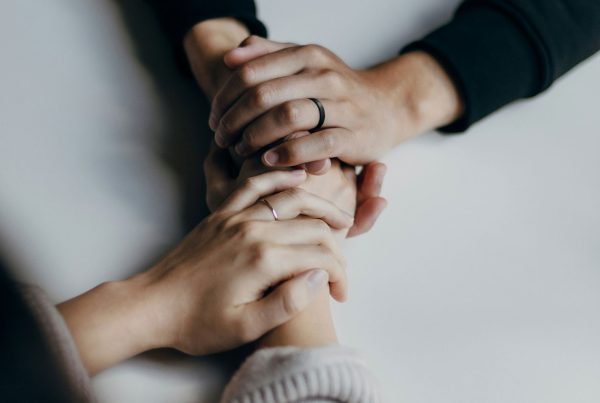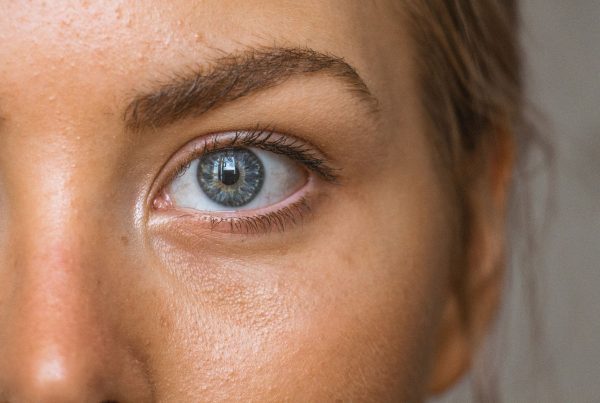For younger generations like millennials and gen z, it’s hard to remember a world without social media. Although platforms like Facebook, Instagram, Twitter, or Linkedin have become inescapable giants in most of our everyday lives today, the widespread adoption of social media actually didn’t occur too long ago. Myspace reached its apex in 2005 and 2006 marked the birth of Twitter as well as Facebook’s transition from a Harvard-only club to a global network. All this to say, the rise in popularity social media experienced was nothing short of meteoric – and it all happened in under 20 years. Whereas only 5% of adults in the United States reported using social media in 2005, that number reached 70% by 2019 and is likely higher today. Good or bad, what can definitively be said is social media is powerful. The purpose of today’s blog isn’t to crucify social media and its use, but instead, recognize its power, inevitable influence, and potential for harm – especially as it relates to mental health.
Can You Be Addicted to Social Media?
While there is no such formal diagnosis, compulsive and excessive use of social media can certainly lead to social, cognitive, and behavioral impairment in a person’s life – and there are physiological underpinnings behind that.
Dopamine is a brain chemical most popularized for inducing feelings of joy and happiness, but often unrecognized is its leading role in our brains’ reward pathways. In short, reward pathways are responsible for giving us a sense of what is pleasurable and unpleasurable in the world around us, and that sense is largely established by how much dopamine is associated with a particular object, person, event, etc. The more dopamine our brain produces for a certain thing, the more likely we are to pursue it. This is why as a kid you probably felt far more motivated to play video games than start homework when you got home from school. It’s no different with social media. The moment you first opened Tik Tok your brain got to work evaluating how pleasurable swiping up was and it quickly learned to associate funny, powerful, novel, engaging content with each swipe up. Now, you may find yourself losing track of the last 30 minutes after you swore you would only take a 5 minute Tik Tok break.
Don’t worry – just because you lose track of 30 minutes after mindlessly scrolling doesn’t mean you’re ‘addicted’ to social media. The crux of what a mental health professional might consider to be a behavioral addiction to social media involves significant impairment or distress caused by its use. Examples of social, cognitive, behavioral, or emotional impairment related to social media include:
- Decreased work or academic performance due to overuse of social media
- Decreased face-to-face interaction with others in your immediate environment (e.g. at dinner, during a party, on a date)
- Increased reliance on social media as a distraction while coping with problems
- Restlessness and/or irritability whenever you’re not using social media
- Significant difficulty starting or finishing a task as a result of being on social media
- Poor concentration and memory outside of things related to social media
Other Signs To Consider
It is not always easy to tell if you are suffering from social media-related mental health concerns, but there are several warning signs that can help you figure it out. Do you:
- Find yourself checking social media compulsively even though you know that you don’t want to?
- Feel worse after checking your phone or computer, and find it hard to resist the urge to check your devices again and again?
- Feel like people are judging you based on what they see on your social media profiles?
- Spend less time doing other activities, like hobbies or socializing in order to use social media?
- Feel more lonely and isolated than before?
If you answered yes to one or several of these questions, you’re not weak, selfish, or unmotivated. Every year businesses spend millions of dollars on employing psychologists, marketing experts, data analysts, and program developers to create products specifically designed to stimulate and engage the human psyche in order to sell more. Below, we will discuss methods of regaining control of your social media usage.
Social Media and Mental Illness
Social media has revolutionized the way we communicate with each other. We have more access to people than ever before and we can see what they are doing in real time. However, this constant connection to people around the world can be damaging for our mental health. One of the key themes behind the negative effects of social media is comparison. Comparison can take several different forms, such as scrutinizing your body after seeing attractive strangers online, experiencing FOMO (Fear of Missing Out) after seeing friends post about a concert, or believing you are falling behind your peers who are posting about earning doctorates, having children, etc. Though comparison isn’t inherently a negative thing, it can easily lead to feelings of inadequacy, unhappiness, and desperation, which over time can give way to more severe mental health concerns like anxiety and depression.
Research suggests that people who spend more time on social media are more likely to experience anxiety and/or depression than those who don’t use social media at all or less often. Among the list of populations especially vulnerable to worsening mental health, adolescents rank highest. A systematic review investigating the influence of social media on depression, anxiety, and psychological distress in adolescents found that all four domains of social media (time spent, activity, investment, and addiction) correlated with increased depression, anxiety, and psychological distress among the studies’ participants. Interestingly, another study focusing on adolescent mental health found that passive social media activity (e.g. only reading posts but not engaging) is more strongly associated with depression than active use (e.g. reading and producing posts). While adolescents remain one of the populations most vulnerable to social media, the impact of social media does not discriminate. In an interesting study researching links between particular social media platforms and depression in certain age groups, Facebook use was associated with depression among participants younger than 35, but not those over 35. In those 35 and older, Tik Tok and Snapchat were associated with more depressive symptoms.
It is important to note, the relative novelty of social media and its impact means researchers are only getting started with investigating this topic. Though strong associations between mental health concerns and social media use can be made, researchers still can’t definitively say if social media causes depression, anxiety, etc. or if individuals with those concerns are more likely to have higher social media use. Future studies surrounding the mechanisms of social media impact on mental health may provide critical information that can guide personal restrictions, psychological treatments, and political decisions related to social media companies.
How to Protect Your Mental Health Against Social Media
As mentioned before, the point of this blog isn’t to label social media and its use as objectively ‘bad.’ However, the amount of power social media has garnered at micro and macro levels is certainly something to acknowledge so that we may ensure social media simply remains a tool for our use in connection, leisure, etc. Here are a few things you can do to protect your mental health:
- Use your phone settings to set time limits for each of your social media apps.
- Adjust the notification settings on each of your social media apps to only send what you most care about.
- Evaluate the profiles you follow and visit. If they make you feel bad, unfollow or block them so you can’t immediately revisit them.
- Be mindful that what people post – and what you see – is likely an inaccurate or partial representation of their full life.
- Make a concerted effort to develop hobbies that don’t require the use of technology since it’ll place you further away from social media platforms
Finally, there are several ways social media directly impacts mental health, such as comparing yourself to others or reading hateful comments made about you. Still, in the discussion of social media’s impact on mental health, it is equally as important to consider how social media may be contributing to worsening mental health indirectly. One of the most impactful indirect ways is how it affects your sleep hygiene. Sleep hygiene refers to the healthy habits, behaviors, and environmental factors that enable you to have a good night’s sleep. Examples of how social media may be damaging your sleep hygiene include:
- Getting less sleep per night because you fall asleep later due to mindless scrolling before bed
- Confusing your biological clock with excessive blue light (from your screen) at times your environment should be getting darker (e.g. evening and night)
- Less restful sleep due to the intermittent buzzing or ringing from incoming notifications throughout the night
If these examples resonate with you, consider banning social media use after a certain time in the evening, putting your phone fully on silent (no buzz) when going to sleep, or charging your phone on a desk across the room overnight.







